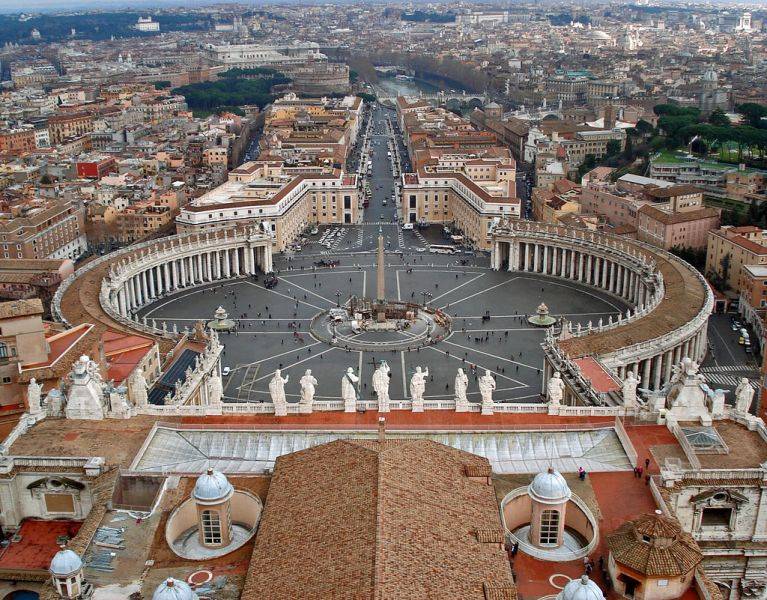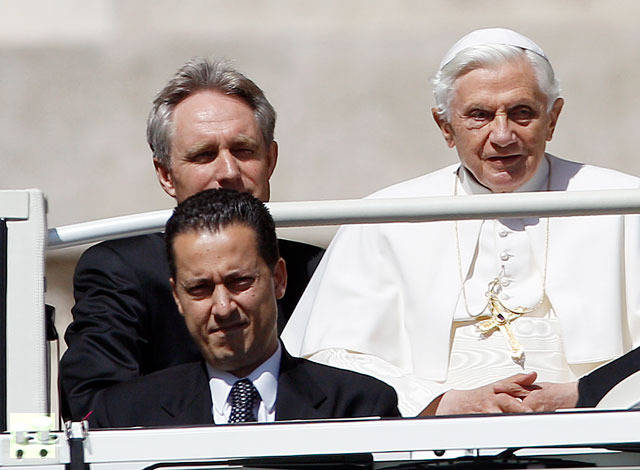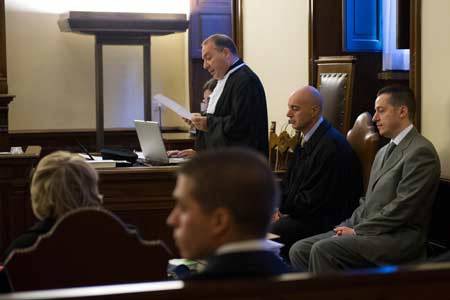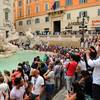The Trial Inside the Vatican
ROME - By the end of this week the Vatican press corps will know how the butler's crime is to be punished. The butler, Paolo Gabriele, was the pope's manservant who risks 4-1/2 years in an Italian jail after confessing to have leaked secret Vatican documents that wound up in a book. Reporter Gianluigi Nuzzi's Sua Sanita', Le carte segrete di Benedetto XVI (His Holiness, The Secret Papers of Benedict XVI), published by Chiarelettere, caused a sensation when it appeared in late May. Such was the scandal of what was immediately dubbed Vatileaks that Gabriele was arrested and held in a jail inside the independent state of the Vatican. Another arrest followed, an IT worker, also on trial as Gabriele's accomplice.
What the Vatican press corps, and the outside world, will not know is more important than Gabriele's conviction, which is not in doubt. The Vatican, as an independent state, has the right to conduct trials as it chooses. This case illustrates those choices. First, Cristiana Arru, the woman who is serving as Gabriele's lawyer, is under a gag rule order and cannot speak to the press. Secondly, the charges and defense arguments are in writing only; there is no open debate and no cross questioning of witnesses although Gabriele is expected to answer questions from the presiding judge. Witnesses are identified not by name but only by letters, A,B, C, etc.
This is important because it means that his motive, whatever it was, will not be explored. Third, for a trial which has generated interest all over the globes, there are few witnesses: a pool of only eight reporters, who change daily by lottery, can attend trial sessions. Finally, although only two individuals are on trial, all those with some inside knowledge of the Vatican are convinced that Gabriele was not in fact alone with a single henchman. Not even the name of his reverend confessor, who received photocopies of boxes of documents from Gabriele himself and frightened, burned them, has ever been released.
Further complications are the forced resignation of Ettore Gotti Tedeschi, the non-clerical president of the Vatican bank, the IOR, apparently as a result of an overly cooperative statement he made to Italian investigators on the trail of a suspicious multi-million-dollar deposit in an Italian bank branch from a still anonymous IOR account. The point is that international bank policing organizations and the Italian government as well have put pressure on the IOR to avoid any activities that might screen money-launderers. Some inside the Vatican, but not all by any means, argue for more transparency. Some of the leaked documents refer to this scandal.
One banking detail did emerge at the first hearing on Sept. 29: that the E100,000 ($125,000) check found among the 82 boxes of papers found in Gabriele's apartment, apparently overlooked by him, had been given to the pontiff, not in Mexico (as had been reported), but last March during the pope's trip to Cuba by the rector of the University of Murcia in Spain. Among trial documents is a photocopy of the check and a photograph of a gold nugget that had similarly been given to the pope. The court decided, however, to take no action concerning this check.
A particularly nasty business erupted at about the same time last Spring, when it emerged that a notorious mobster had been buried, on orders of a cardinal, inside an ancient and venerated church in downtown Rome. Possible reasons behind this suspect burial have ranged from the bizarre to the wicked: he was the cardinal's son; the mobster had given huge sums to the Church; the mobster had secret knowledge of a girl's murder and blackmailed the Church. No serious explanation has been offered.
On Tuesday the pope's foremost aide, the German Mons. Georg Gaenswein, is to testify. He was the first to accuse the errant butler of stealing papal papers, which the butler initially denied but has now admitted. Gabriele spent over two months in solitary confinement. The trial is expected to wind up within the week, if for no other reason than that a synod of bishops from all over the world opens the following week. At this point the most Gabriele can hope is, following his conviction, an act of clemency from the Pontiff himself.
Lacking news, the reporters have been having a field day harking back to ghastly trials that took place within Vatican walls hundreds of years ago.







































i-Italy
Facebook
Google+
This work may not be reproduced, in whole or in part, without prior written permission.
Questo lavoro non può essere riprodotto, in tutto o in parte, senza permesso scritto.